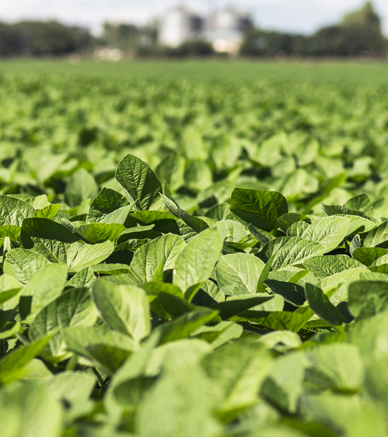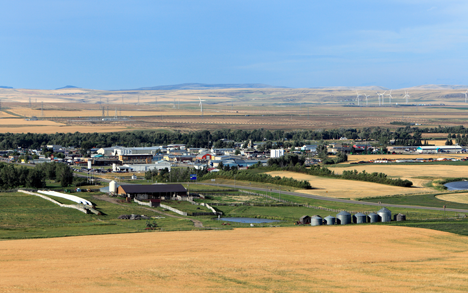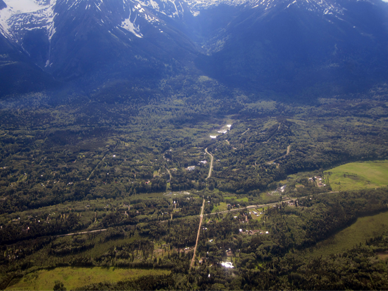West at a Glance - Fall 2019 - Rural Economic Development
ISSN: 2561-3863
News and Analysis | Upcoming Events| Look Ahead
Key Economic Indicators | View the print-friendly version: PDF
News and Analysis

Manitoba
A Changing Landscape in Rural and Northern Manitoba

Manitoba is the only province in Canada with one major urban centre (Winnipeg). Rural Manitobans represent almost half (45%) of the provincial population. This balance between rural and urban populations and the synergies between rural and urban economies helps make Manitoba the most diversified provincial economy in Western Canada. Rural Manitoba contributes 35% of Manitoba's GDP. Most of this output is driven by goods-producing sectors that support service sector jobs in Winnipeg. A thriving rural economy is critical to prosperity in the province, but a changing rural economic landscape is presenting challenges for the future.
As elsewhere in Western Canada, Manitoba's rural economy has experienced disruptive change in recent years. Primary agriculture jobs in southern Manitoba have declined, as larger businesses replace small family farms. Meanwhile, there have been layoffs following mine closures in northern Manitoba.
Natural resources remain a cornerstone of the rural and northern economy. In fact, Manitoba is positioning itself to capitalize on new growth opportunities in the sector.
Mining for jobs and growth
To jump-start new mineral development, the Government of Manitoba announced a new Manitoba Mineral Development Fund (MMDF). Run by the Manitoba Chambers of Commerce, MMDF will provide $20 million in funding to businesses, municipalities, Indigenous groups and not-for-profits to advance new mining opportunities.
The Government of Canada's Clean Energy in Rural and Remote Communities Program is also investing to reduce reliance on diesel fuel in rural, remote and indigenous communities. This promotes a clean and reliable energy supply and creates new jobs and economic growth.

A skilled workforce is foundational to harnessing rural Manitoba's economic potential, but existing skill gaps are limiting the ability of rural Manitobans to take advantage of opportunities. To address this, WD is investing in institutions that develop rural Manitobans' talents. Assiniboine Community College will receive WD funding to increase skills training to meet the growing demand for emerging talent in southwestern Manitoba's agri-food sector. University College of the North will receive WD funding to:
- pilot a business incubator
- offer business start-up services
- set up a digital prototyping facility
- set up a Youth Entrepreneurship Initiative
Manitoba's protein advantage
Increasing food and agri-product processing in rural Manitoba can help diversify the economy. To that end, the Government of Manitoba unveiled a new sustainable protein strategy: The Manitoba Protein Advantage. A key goal of the strategy is to attract new investment and jobs in protein research and processing.
This would keep Manitoba's producers on the leading edge of plant and animal protein innovation, and capitalize on the growing global demand for proteins.
Saskatchewan
Traditional crops create new opportunities for rural producers

Global demand for organic, naturally sourced and sustainable food is growing rapidly. This includes prepared foods, ingredients, and nutritional supplements. The European nutrition and supplements market was valued at US $31.7 billion in 2016. The Asia-Pacific nutraceuticals market was valued at $108 billion in 2018. And by 2025 the global nutraceuticals market is projected to reach over $578 billion.
Producers and small businesses in rural and northern regions of Saskatchewan have recognized this opportunity. These food entrepreneurs are developing new products and markets for specialty crops that have sustained people for generations in the Land of the Living Skies – including berries and plants harvested from Saskatchewan's boreal forest.
Saskatoon Berries
According to the Saskatchewan Ministry of Agriculture, more than 40 small to medium-sized companies in the province grow and process Saskatchewan-grown berries or use them in food products they make. Saskatoon is the berry that lends its name to Saskatchewan's biggest city. It was a staple of the Indigenous people of the Northern Plains and is now considered a 'superfood.' High in nutrients and antioxidants, saskatoon berries are marketed as traditional products, like jams and jellies. They are also increasingly being promoted as a natural ingredient for nutritional supplements.
Prairie Berries, based in Keeler, Saskatchewan, has been in business for 20 years and runs the largest saskatoon berry processing plant in Canada. It produces a variety of products, including:
- spreads and fillings
- frozen and dried whole fruit
- ingredients, such as saskatoon concentrates and powdered berries for nutritional supplements
Prairie Berries is researching and developing new products, such as nutraceutical ingredients. It is also promoting saskatoon berries internationally.

In July 2019, WD invested through the Government of Canada's Women Entrepreneurs Strategy to help Prairie Berries expand its processing plant.
Into the Woods
There's more to Saskatchewan's boreal forests than the trees. Besides timber, the forest that covers half of the province has a bounty of plants and fungi. Many of these are in high demand as gourmet foods and as ingredients in teas, nutraceuticals, and personal care products. Such plants include:
- wild mint
- fireweed
- tree resins
- Labrador tea
- wild sarsaparilla
- morel mushrooms
These have been used by Indigenous peoples as traditional medicines. They are now finding new roles as ingredients in a number of food and non-food products.
The Keewatin Community Development Association (KCDA) is working with Indigenous northerners to develop the non-timber forestry industry in northern Saskatchewan. KCDA trains harvesters and environmental technicians, runs a processing plant in Air Ronge, and markets its products under the Boreal Heartland label. Sustainability is a key part of Boreal Heartland's business, with advice from an Indigenous advisory committee guiding its harvesting quantities and methods.
WD is a partner of KCDA and Boreal Heartland, through the support of two projects in 2017 and 2019.
By combining traditional knowledge and native crops with modern technology, research and marketing, Saskatchewan's specialty fruit and ingredient producers are tapping into new international opportunities for rural businesses.
Alberta
Economic diversification in rural Alberta

As of 2016, 84% of Albertans lived in cities, making it Canada's third most urban province. Nevertheless, rural communities are integral to Alberta's economy, punching well above their weight. In 2018, Albertan agricultural and agri-food exports totalled $11.6 billion, and the province led the nation in cattle and calf inventory, with more than 40% of Canada's total.
There are 140 First Nations reserves and eight Métis settlements in Alberta. These Indigenous lands equal 1,324,892 hectares. Alberta is home to roughly 15% of Canada's Indigenous population.
Even the province's most iconic event, the Calgary Stampede, celebrates Alberta's rural identity both past and present.
The continued growth of vibrant and economically resilient rural communities is a pillar of the Government of Canada's Grow West: The Western Canada Growth Strategy. WD and its partner organizations play a critical role in supporting this work in rural communities all across the province.
Community Futures
The Community Futures Program (CF) takes a grassroots approach to community and economic development. WD supports the program, which includes a network of 27 offices across Alberta that help small businesses create jobs in the community. They also work with community and business leaders to foster rural economic growth. In 2018 and 2019, over 1,050 jobs were created, maintained, or expanded in Alberta as a result of the Community Futures Program.

Community Futures Treaty Seven (CFT7) is just one example of the impact CFs have across the West. Through its work, CFT7 supports Indigenous entrepreneurs in the Treaty Seven area of southern Alberta by working with surrounding First Nations and their members to develop and grow their economies. Through events such as the annual First Nations Business Builder Series, Indigenous businesses have the opportunity to hear from expert panels and workshops. In 2020, the event will mark its 10th anniversary.
Open Farm Days
Several CFs across Alberta participate in the province-wide Alberta Open Farm Days. During this Alberta-wide two-day event, farmers and ranchers open their doors for visitors to tour and learn about where their food comes from. The event creates an opportunity for farm businesses to experiment with agri-tourism, and helps CFs develop community-based projects to help diversify the local economy. CFs that support Open Farm Days and the development of agri-tourism in their region include:
- CF Big Country, which coordinated Open Farm Days in its region for the past two years
- CF West Yellowhead, which launched the 'Grow Yellowhead' brand
- CF Wild Rose, which got $99,575 through the Canadian Experiences Fund to build agri-tourism in Southern Alberta
- CF Highwood
Rural economic diversification
WD also works directly with rural communities and organizations to develop innovative projects to diversify rural economies. In Coaldale, Alberta, WD is helping Whole Leaf improve productivity and increase the capacity of its greenhouse production plant with $3.5 million in Business Scale-up and Productivity (BSP) funding. Its 2.2 hectare, high-tech greenhouse combines robotics with other technologies to grow fresh produce all year round. The project is expected to create 25 jobs and generate $70 million in export sales, for $33 million in revenue growth.
Economic transition is affecting many rural communities, but new opportunities are emerging. The Government of Canada recognizes the impact of phasing out coal-fired power generation and transitioning to a low-carbon economy on certain rural communities. To support affected Alberta and Saskatchewan workers and communities, WD is implementing the Canada Coal Transition Initiative (CCTI). Budget 2018 allocated $25 million to WD to help these communities, including supports to community members. Budget 2019 included another $105 million for WD to support priority projects and economic diversification.
Rural Albertans are entrepreneurial, innovative and resilient. WD and its partners under the Grow West: Western Canada Growth Strategy will continue to work with rural Albertans to ensure that their communities remain strong and sustainable long into the future.
British Columbia
Expanding the technology sector in rural B.C.

The technology sector is a key driver of economic growth in British Columbia (B.C.). In 2017, the sector generated 7% of provincial gross domestic product (GDP) and provided jobs that pay 84% more than the provincial average. It employs more than 150,000 British Columbians across a number of sub-sectors, including clean technology, interactive and digital media, and life sciences. B.C.'s technology ecosystem continues to expand and offer opportunities for further growth.
One underrepresented area in the technology sector is rural B.C. The province's rural economies have traditionally been driven by agriculture and natural resources. They have had limited access to broadband internet, as well as fewer technology-focused training and education opportunities. These factors have contributed to slower growth of the tech sector in rural communities, relative to the rapid growth of B.C.'s tech-hubs, like Vancouver, Victoria and Kelowna. This gap between rural and urban areas presents an opportunity to expand technology in rural communities through improved training, connectivity and entrepreneurship support.
Taking action
In March 2018, WD provided more than $3,000,000 to the First Nations Technology Council to increase access to digital skills training for more than 200 Indigenous communities across British Columbia.
With full and equitable access to the tools, training and support to take advantage of technology, Indigenous innovators can thrive in B.C.'s tech sector and bring their skills back to their communities.

The Innovation, Science and Economic Development Canada (ISED) CanCode program has also funded projects in rural B.C. and across Canada to boost digital and coding skills.
Without high-speed Internet, however, rural communities remain on the wrong side of the "digital divide".
The Government of Canada's Connect to Innovate program is investing $500 million to bring high-speed Internet to 300 rural and remote communities in Canada. More than $55 million has already been provided to rural communities in B.C. under this program.
The Government of Canada and the Government of B.C. are increasing the broadband infrastructure needed for technological growth in rural B.C. In 2016, the Canadian Radio-television and Telecommunications Commission (CRTC) declared broadband internet a basic service to which all Canadians should have access. Through the Broadband Fund, the CRTC has committed $750 million in funding across the country to improve rural internet access.
The Connecting British Columbia program is administered by Northern Development Initiative Trust and funded by Network B.C. It has invested $10 million into infrastructure that connects more than 43,000 homes and businesses to high-speed internet in rural and remote areas of B.C.
WD continues to support the growth of the technology sector in rural B.C.
Upcoming Events
British Columbia
Cleantech Forum San Francisco
San Francisco, CA | January 27-29, 2020
This annual event hosted by the Cleantech Group brings together influential clean technology leaders – corporate executives, start-up and growth company CEOs, investors, government agencies, and other players – from across all areas of resource innovation.
BC Natural Resource Forum
Prince George, B.C. | January 28-30, 2020
The forum will discuss the latest news, trends and opportunities linked to the resource sector in B.C., and will include insights from Indigenous, Government and resource sector leaders on how B.C. can improve its competitive advantage in sustainable resource development.
#TrueNorth Business Development Forum
Prince George, B.C. | January 28, 2019
#TrueNorth offers entrepreneurs and leaders better tools and strategies so they can lift up their communities and businesses. Thought-leading experts on economic development, finance, and First Nations partnerships will bring audiences the most current data and proven-strategies to grow their brands and communities.
GLOBE 2020
Vancouver, B.C. | February 10-13, 2020
GLOBE Series is the largest and longest-running sustainable business summit and innovation showcase in North America. GLOBE 2020 will have a focus on impact, action and outcomes, and will offer growth and networking opportunities to thousands of corporate, government and young leaders.
2020 Western Innovation Forum
Vancouver, B.C. | March 5, 2020
The Western Innovation Forum (WIF) promotes western Canadian capabilities in the aerospace, marine, and defence industries. The event focuses on connecting innovators, companies and researchers with opportunities for innovation-driven investment and business growth.
Alberta
Alberta's Industrial Heartland Association 2020 Annual Stakeholder Event
Edmonton, AB | January 30, 2020
A specialized technology conference that provides an in-depth look at blockchain's transformative power in industry, government and economic systems.
Annual ConvergX Summit
Calgary, AB | February 4-6, 2019
ConvergX® is a global summit that creates investment and growth opportunities across the Military, Energy, Mining, Aerospace, Defence & Security sectors.
Growing the North Conference
Grande Prairie, AB | February 19-20, 2019
The Growing the North Conference helps municipal leaders and entrepreneurs examine innovation and explore economic development opportunities in the Peace Region of Northwest Alberta and Northeast B.C.
Saskatchewan
Western Canadian Crop Production Show
Saskatoon, SK | January 13-16, 2020
The 37th Annual Crop Production Show is Western Canada's premiere grain industry tradeshow for producers, service providers, and industry experts.
CropSphere 2020
Saskatoon, SK | January 14-15, 2020
CropSphere is a two-day event that takes place during Crop Week. The conference features sessions on market outlook, research, and agronomy, along with sessions specific to each crop.
15th Annual JDC West Business Competition
Regina, SK | January 17-19, 2020
The largest business competition in Western Canada, the event will provide 650 undergraduate students from post-secondary institutions from across the West with learning and networking opportunities as they prepare to enter the workforce and become entrepreneurs and business leaders.
Plant Health Summit
Saskatoon, SK | February 25-26, 2020
The Plant Health Summit brings leading researchers and industry stakeholders together to discuss new and innovative ideas on plant health and profit. The two-day event aims to equip producers with the most up-to-date knowledge on plant management.
2020 Saskatchewan Aerospace and Defence Forum
Saskatoon, SK | March 3, 2020
Learn more about opportunities and doing business in the aerospace and defence sector from prime contractors. Engage with Indigenous suppliers.
Manitoba
The State of the City Address
Winnipeg, MB | January 24, 2020
A conference to focus on how organizations and communities thrive in today's environment. Topics include generations in the workforce, cyber security and ransom, non-traditional businesses, and technology and rural issues.
Disrupted: The Human Side of Tech
Winnipeg, MB | January 30-31, 2020
This two-day event will bring together entrepreneurs, academia, and stakeholders to discuss and debate the multiple factors impacting humans in a growing technological world.
Look Ahead
- Efficiency Manitoba, Manitoba's new crown corporation focused on energy efficiency, will submit its first three-year plan to the Public Utilities Board (PUB) for review on Nov. 1, while maintaining an implementation date of April 1, 2020.
- A new regional organization is being established to deliver economic development programming in rural Manitoba. This process is being led by the Manitoba Chambers of Commerce and Association of Manitoba Municipalities.
- The Saskatchewan Urban Municipalities Association's Annual Convention takes place in Regina February 2-5.
Note: The Government of Saskatchewan released its second 10-year Growth Plan for 2020-2030 on November 14, 2019. The plan consists of 20 actions and 30 goals to be achieved by 2030 including:
- growing Saskatchewan's population to 1.4 million people
- creating 100,000 new jobs
- increasing the value of exports by 50 percent, including growing the value of Saskatchewan's agri-food exports to $20 billion
- $16 billion private capital investment annually.
Key Economic Indicators
Gross Domestic Product |
BC |
AB |
SK |
MB |
Canada |
Last Update |
|---|---|---|---|---|---|---|
| Real GDPFootnote 1 (2012 $billions, forecast) | $265 | $338 | $85 | $67 | $2,087 | Nov-19 |
| % ch. from year earlier | 2.6% | 0.2% | -0.2% | 0.9% | 1.6% |
Labour Market |
BC |
AB |
SK |
MB |
Canada |
Last Update |
|---|---|---|---|---|---|---|
| Employment (SA, thousands) | 2,550 | 2,339 | 581 | 652 | 19,092 | Nov-19 |
| Change from previous month | -18.2 | -18.2 | -1.6 | -1.5 | -71.2 | |
| % ch. from previous month | -0.7% | -0.8% | -0.3% | -0.2% | -0.4% | |
| % ch. from year earlier | 0.7% | -0.8% | 0.4% | -0.1% | 1.6% | |
| Unemployment Rate (SA,%) | 5.0% | 7.2% | 5.8% | 5.6% | 5.9% | Nov-19 |
| percentage points from previous month | 0.3 | 0.5 | 0.7 | 0.3 | 0.4 | |
| percentage points from year earlier | 0.6 | 1.0 | 0.3 | -0.1 | 0.3 | |
| Regular EI beneficiaries (SA) | 40,140 | 45,940 | 14,760 | 14,970 | 445,620 | Sep-19 |
| Change from previous month | -1,460 | -3,020 | -520 | -300 | -5,580 | |
| % ch. from previous month | -3.5% | -6.2% | -3.4% | -2.0% | -1.2% | |
| % ch. from previous year | 3.0% | -6.3% | -5.1% | -4.0% | -1.1% | |
| Average weekly earnings | $1,009.30 | $1,177.54 | $1,044.26 | $970.73 | $1,042.09 | Sep-19 |
| Change from previous year | $33.34 | $38.21 | $31.80 | $32.82 | $40.07 |
Prices |
BC |
AB |
SK |
MB |
Canada |
Last Update |
|---|---|---|---|---|---|---|
| CPI (y/y) | 2.2% | 1.6% | 1.6% | 2.2% | 1.9% | Oct-19 |
| CPI (y/y) previous month | 2.4% | 1.3% | 1.7% | 2.2% | 1.9% | Sep-19 |
Consumers and Business |
BC |
AB |
SK |
MB |
Canada |
Last Update |
|---|---|---|---|---|---|---|
| Retail Sales (SA, $millions) | $7,205 | $6,666 | $1,623 | $1,763 | $51,579 | Sep-19 |
| % ch. from previous month | -0.2% | -1.6% | -0.1% | -1.6% | -0.1% | |
| % ch. from previous year | 0.6% | -2.7% | -0.4% | -1.0% | 1.0% | |
| Manufacturing Sales (SA, $millions) | $4,405 | $6,103 | $1,340 | $1,588 | $57,396 | Sep-19 |
| % ch. from previous month | 3.7% | -3.2% | -4.6% | -4.0% | -0.2% | |
| % ch. from previous year | -3.2% | -10.1% | -11.1% | 1.1% | -1.2% | |
| Building Permits (SA, $millions) | $1,297 | $960 | $137 | $438 | $8,275 | Oct-19 |
| % ch. from previous month | -21.2% | -6.6% | 22.0% | 74.3% | -1.5% | |
| % ch. from previous year | -16.5% | 2.8% | -3.7% | 91.4% | 1.1% | |
| Housing Starts (SAAR, thousands) | 49 | 27 | 2 | 6 | 201 | Nov-19 |
| % ch. from previous month | 40.8% | 11.1% | -20.7% | -18.0% | 0.3% | |
| % ch. from previous year | 22.1% | 3.0% | -16.3% | -41.3% | -10.4% |
International Trade |
BC |
AB |
SK |
MB |
Canada |
Last Update |
|---|---|---|---|---|---|---|
| Merchandise Exports ($millions) | $3,294 | $9,779 | $2,249 | $1,270 | $46,505 | Oct-19 |
| % ch. from previous month | -8.9% | 2.7% | 7.2% | 0.5% | 3.3% | |
| % ch. from previous year | -13.1% | -8.4% | -19.4% | -10.8% | -1.5% | |
| Merchandise Imports ($millions) | $4,965 | $2,289 | $1,013 | $1,921 | $51,522 | Oct-19 |
| % ch. from previous month | 0.4% | -4.6% | -4.7% | 3.1% | 4.4% | |
| % ch. from previous year | 3.3% | -16.9% | 3.0% | -2.6% | -0.2% |
Demographics |
BC |
AB |
SK |
MB |
Canada |
Last Update |
|---|---|---|---|---|---|---|
| Population (estimate) | 5,071,336 | 4,371,316 | 1,174,462 | 1,369,465 | 37,589,262 | Q3 2019 |
| % ch. from previous year | 1.4% | 1.6% | 1.0% | 1.2% | 1.4% | |
| Largest Cities (CMAs) | Vancouver (2,650,005) |
Calgary (1,486,050) |
Saskatoon (322,568) |
Winnipeg* (832,186) |
2018 | |
| Victoria* (395,523) |
Edmonton* (1,420,916) |
Regina* (257,337) |
Brandon (61,507) |
About Western Economic Diversification Canada
Western Economic Diversification Canada (WD) was established to develop the western Canadian economy and advance its interests in Ottawa.
The Department plays a key role as investor, delivery agent, advisor, pathfinder, and convener for the West by delivering on national and regional economic development programs that strengthen the West's traditional economic drivers while accelerating the development of new opportunities.
WD's strategic investments, and research and policy work, help entrepreneurs, businesses, and researchers move new ideas from the test bench to the market, support skills development, and foster business innovation. WD also advocates on behalf of western Canadian industry by informing national policy discussions to ensure that businesses are strong, competitive, and poised to take advantage of opportunities in the global marketplace.
- Date modified: